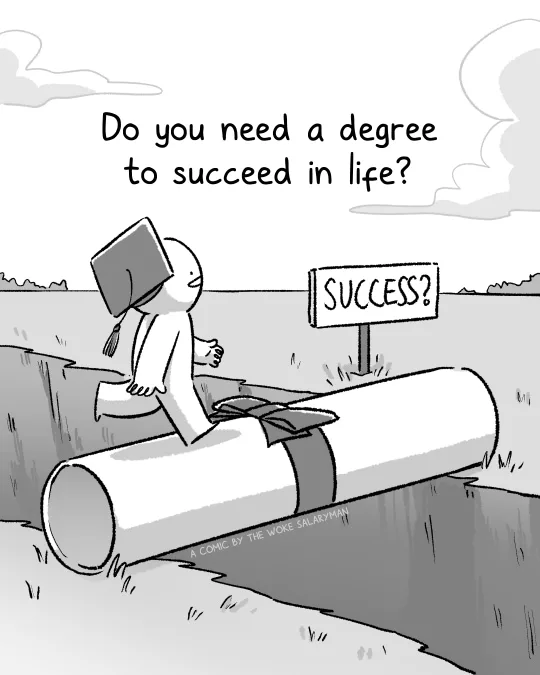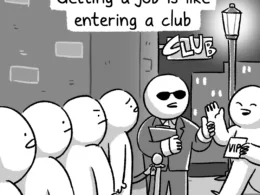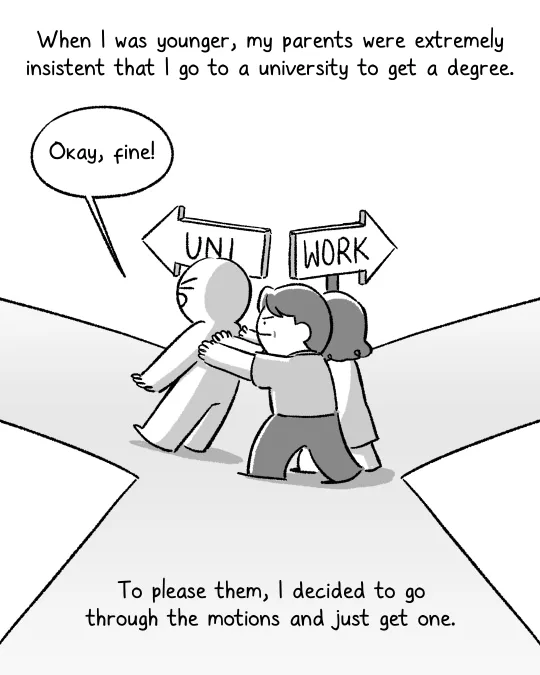
When I was younger, my parents insisted I attend a university to get a degree. To please them, I decided to go through the motions and get one.
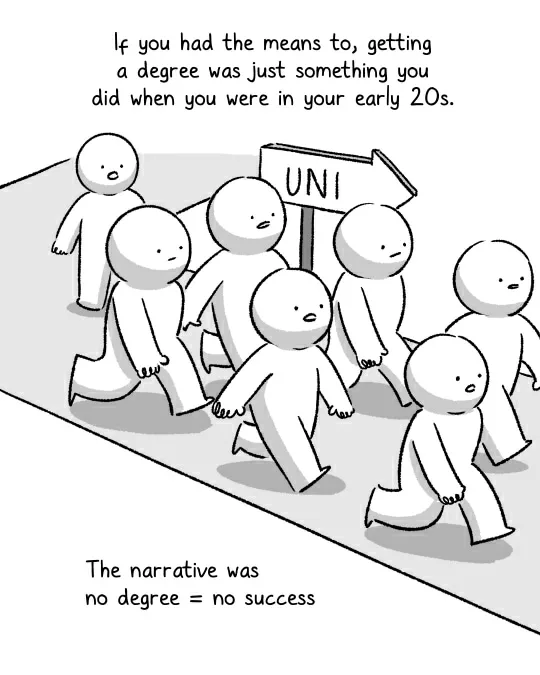
If you had the means to, getting a degree was just something you did in your early 20s. The narrative was no degree = no success.
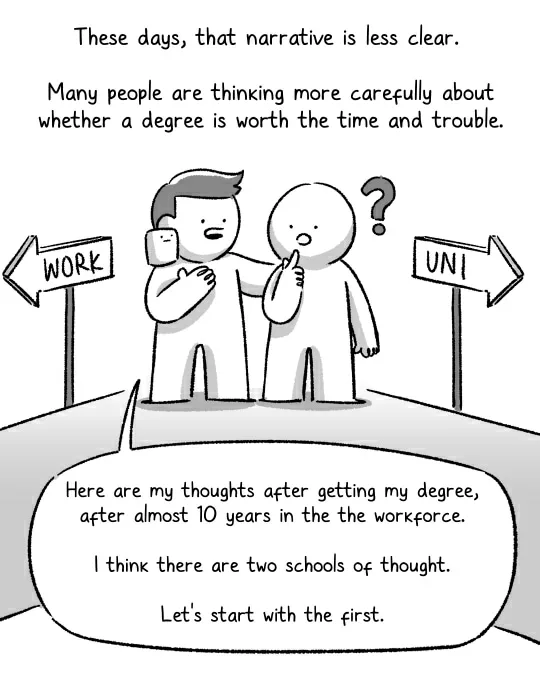
These days, that narrative is less clear. Many people are thinking more carefully about whether a degree is worth the time and trouble. Here are my thoughts after getting my degree, after almost ten years in the workforce. I think there are two schools of thought. Let’s start with the first.
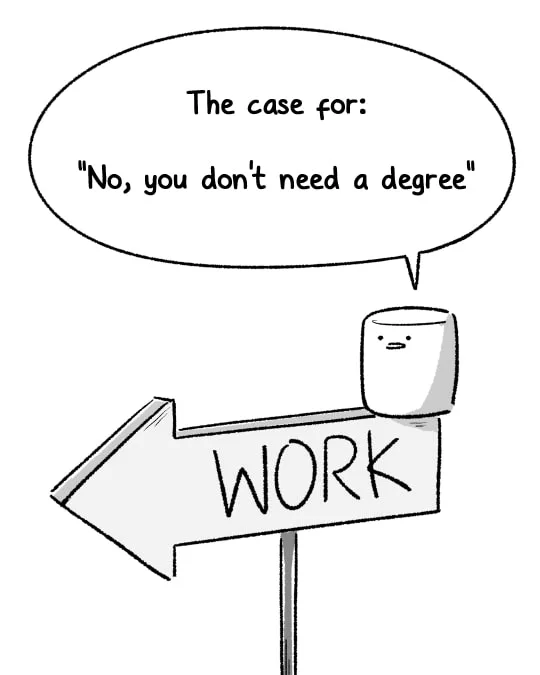
The case for: “No, you don’t need a degree.”
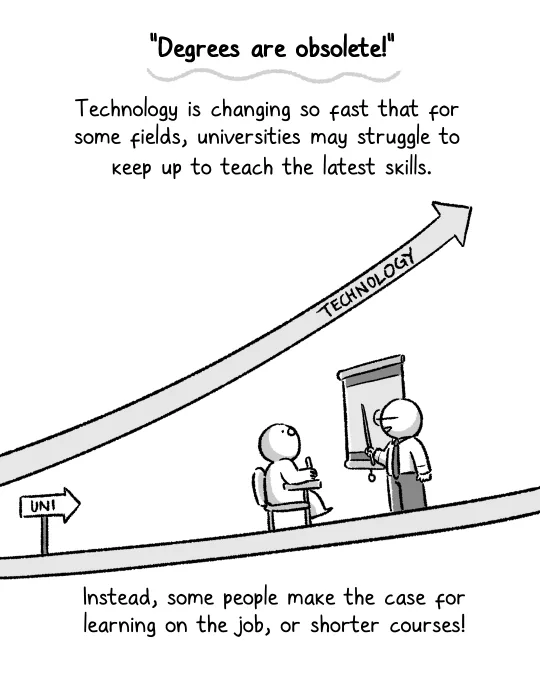
“Degrees are obsolete!”
Technology is changing so fast that, for some fields, universities may struggle to keep up to teach the latest skills. Instead, some people make the case for learning on the job or shorter courses!
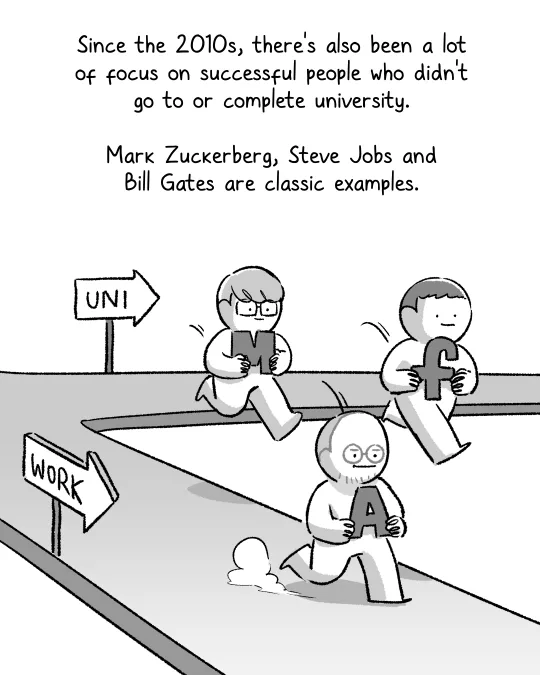
Since the 2010s, there’s also been a lot of focus on successful people who didn’t attend or complete university. Mark Zuckerberg, Steve Jobs, and Bill Gates are classic examples.
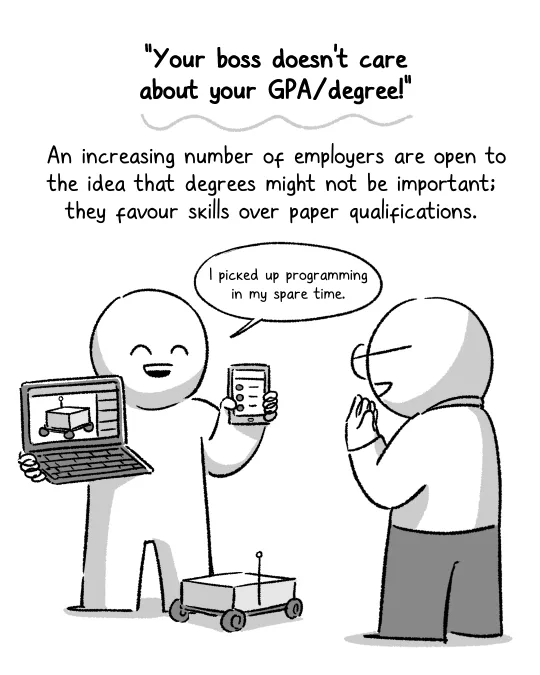
“Your boss doesn’t care about your GPA/degree!”
An increasing number of employers are open to the idea that degrees might not be important; they favor skills over paper qualifications. I picked up programming in my spare time.
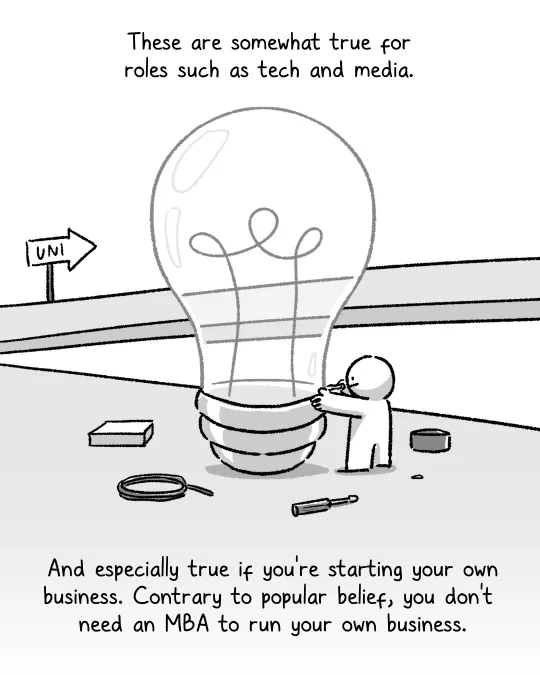
These are somewhat true for roles such as tech and media. This is especially true if you’re starting your own business. Contrary to popular belief, you don’t need an MBA to run your business.
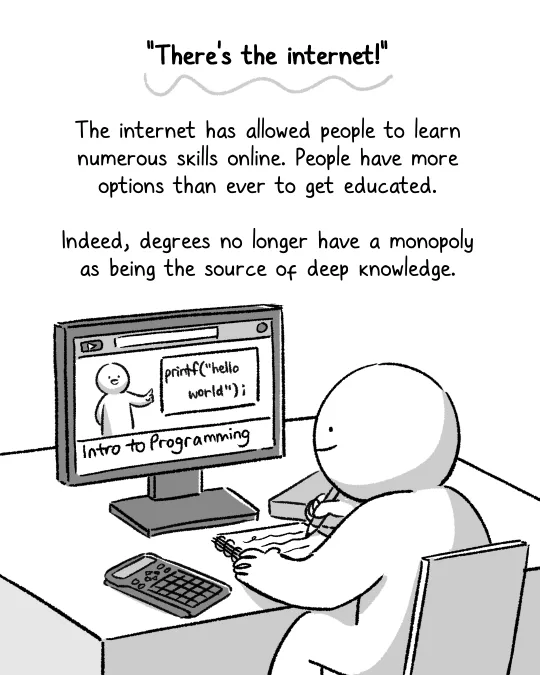
“There’s the internet!”
The internet has allowed people to learn numerous skills online. People have more options than ever to get educated. Indeed, degrees no longer have a monopoly as the source of deep knowledge.
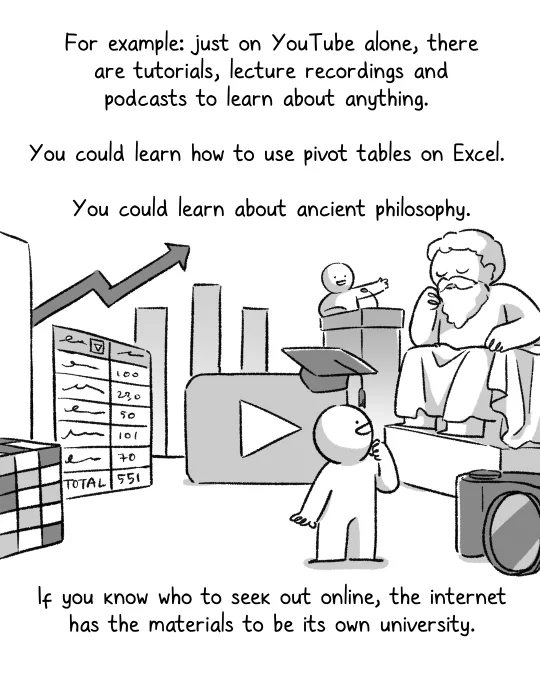
For example, on YouTube alone, there are tutorials, lecture recordings, and podcasts to learn about anything. You could learn how to use pivot tables in Excel. You could learn about ancient philosophy. If you know who to seek out online, the internet has the materials to be its university.
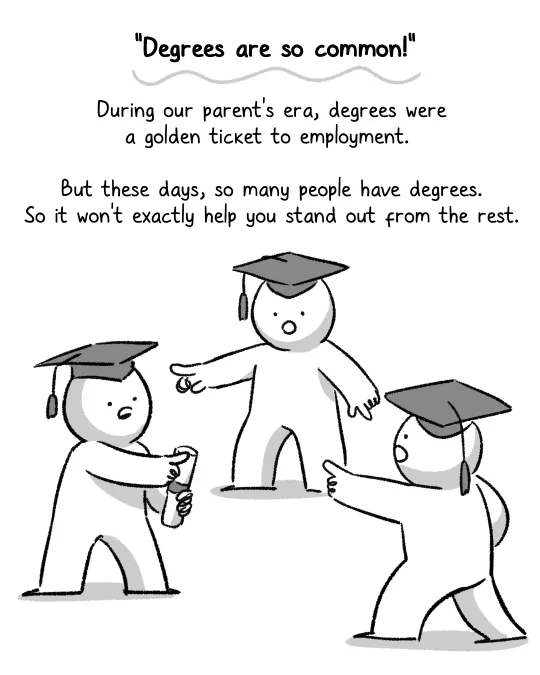
“Degrees are so common!”
During our parent’s era, degrees were a golden ticket to employment. But these days, so many people have degrees. So, it won’t exactly help you stand out from the rest.
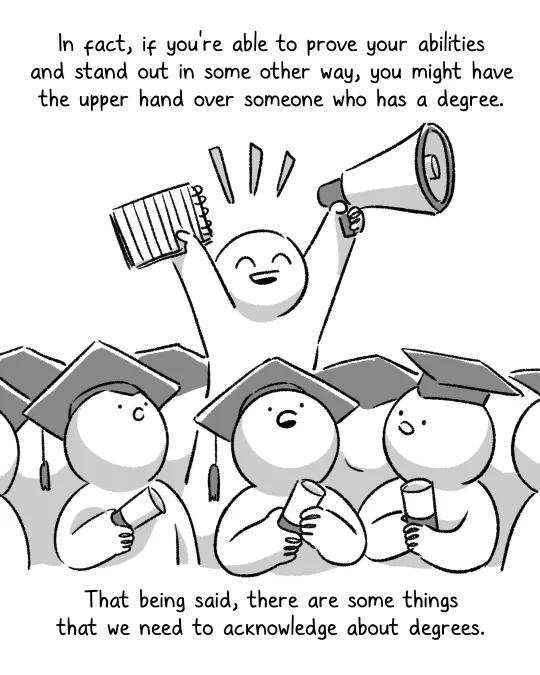
If you’re able to prove your abilities and stand out in some other way, you might have the upper hand over someone who has a degree. That being said, there are some things that we need to acknowledge about degrees.
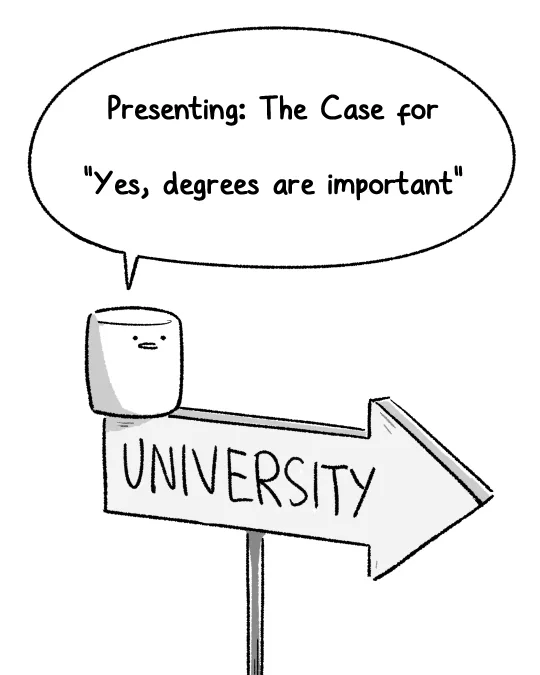
Presenting: The Case for “Yes, degrees are important.”
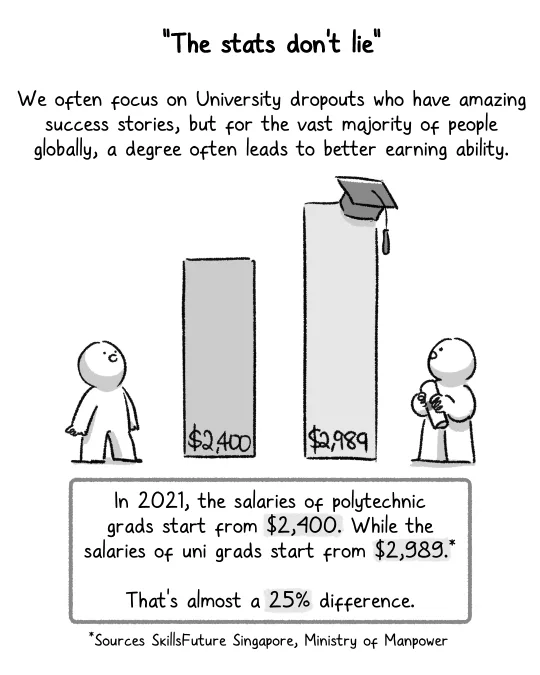
“The stats don’t lie.”
We often focus on University dropouts who have amazing success stories, but for the vast majority of people globally, a degree often leads to better earning ability. $2,400 $2,989 In 2021, the salaries of polytechnic grads start from $2,400. At the same time, the salaries of uni grads start from $2,989.* That’s almost a 25% difference.
*Sources SkillsFuture Singapore, Ministry of Manpower
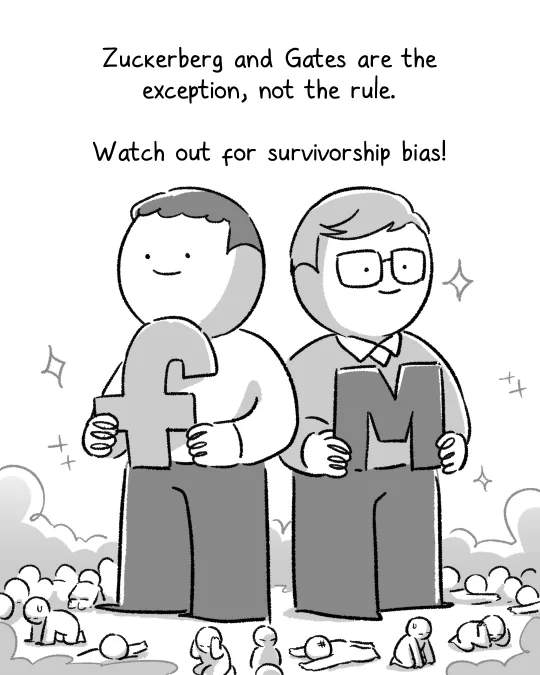
Zuckerberg and Gates are the exception, not the rule. Watch out for survivorship bias!
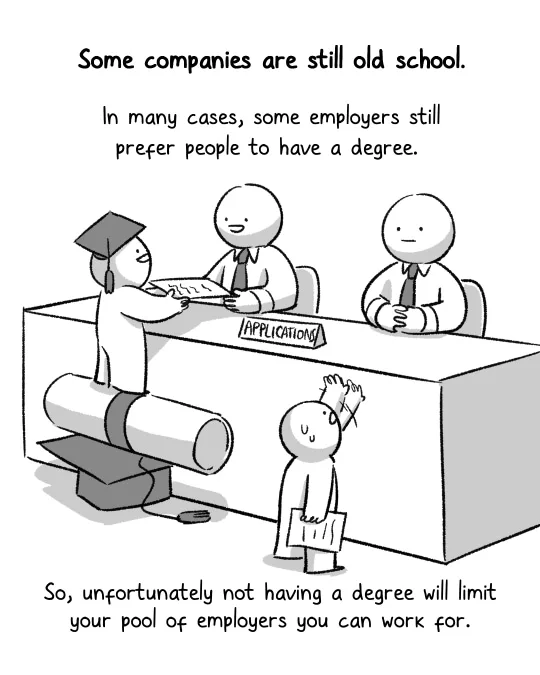
Some companies are still old school.
In many cases, some employers still prefer people to have a degree.
So, unfortunately, not having a degree will limit the pool of employers you can work for.
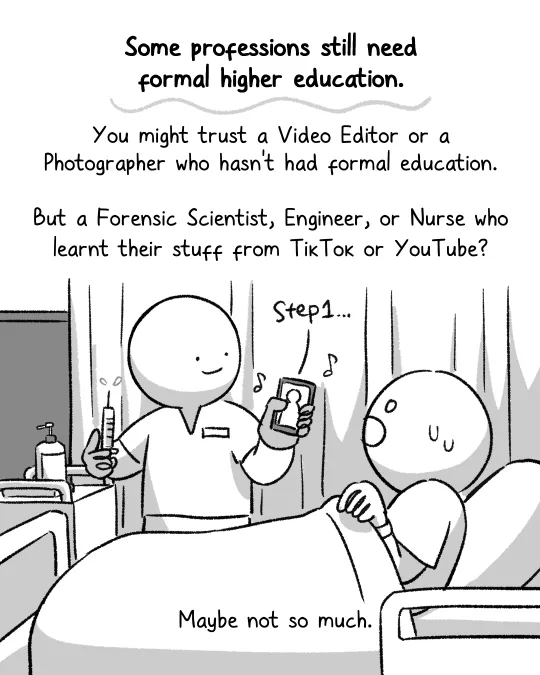
Some professions still need formal higher education.
You might trust a Video Editor or a Photographer who hasn’t had formal education.
But a Forensic Scientist, Engineer, or Nurse who learned their stuff from TikTok or YouTube?
Step 1
Maybe not so much.
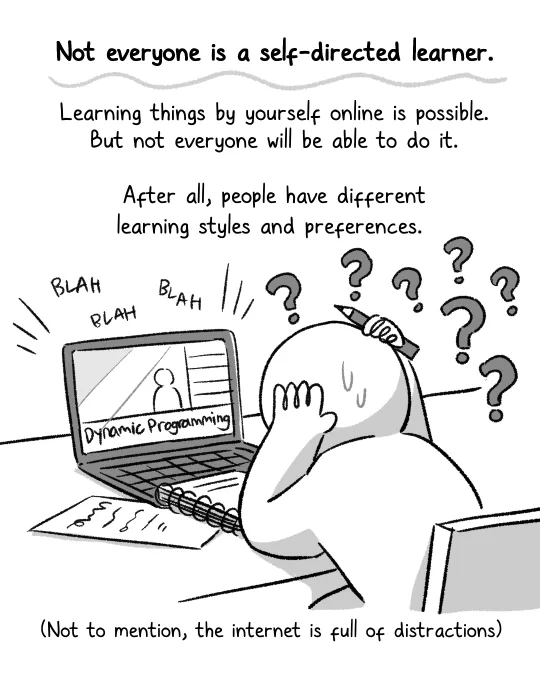
Not everyone is a self-directed learner.
Learning things by yourself online is possible. But not everyone will be able to do it.
After all, people have different learning styles and preferences. (Not to mention, the internet is full of distractions)
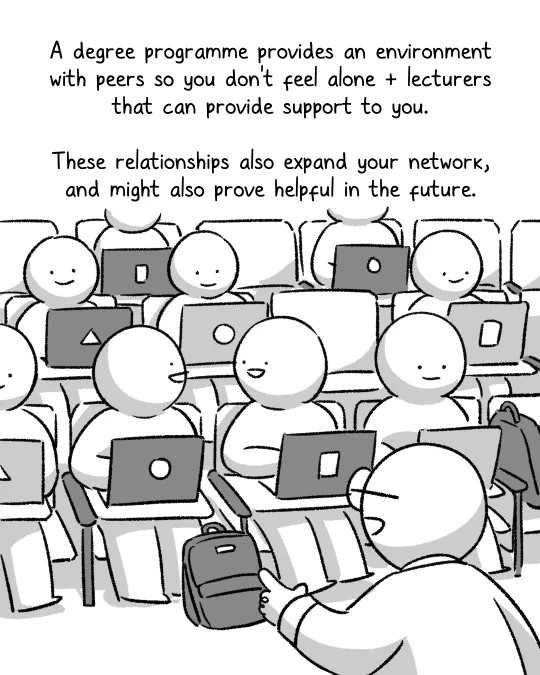
A degree program provides an environment with peers so you don’t feel alone + lecturers who can support you. These relationships also expand your network and might be helpful in the future.
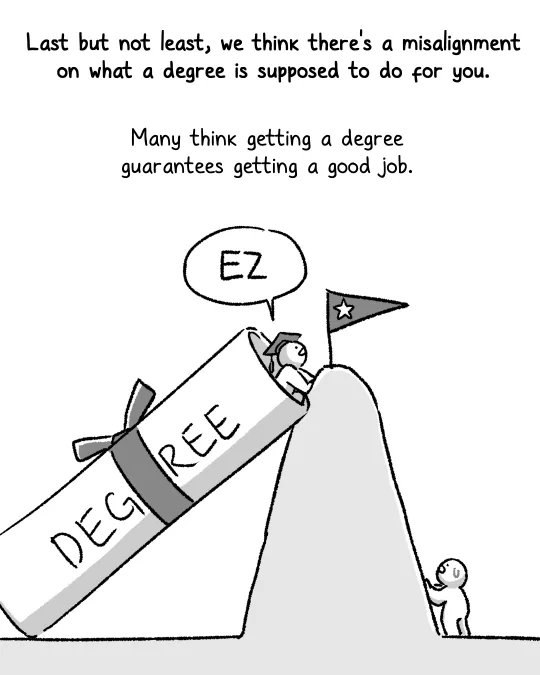
Last but not least, we think there’s a misalignment in what a degree is supposed to do for you. Many think getting a degree guarantees getting a good job.
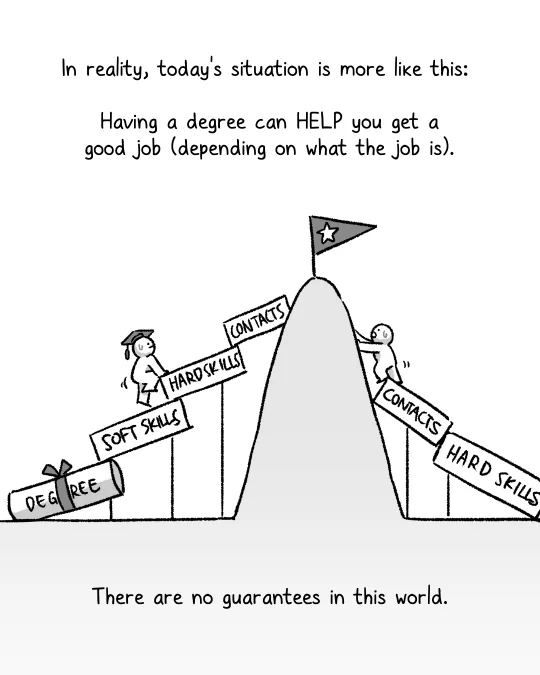
In reality, today’s situation is more like this: A degree can HELP you get a good job (depending on the job). There are no guarantees in this world.
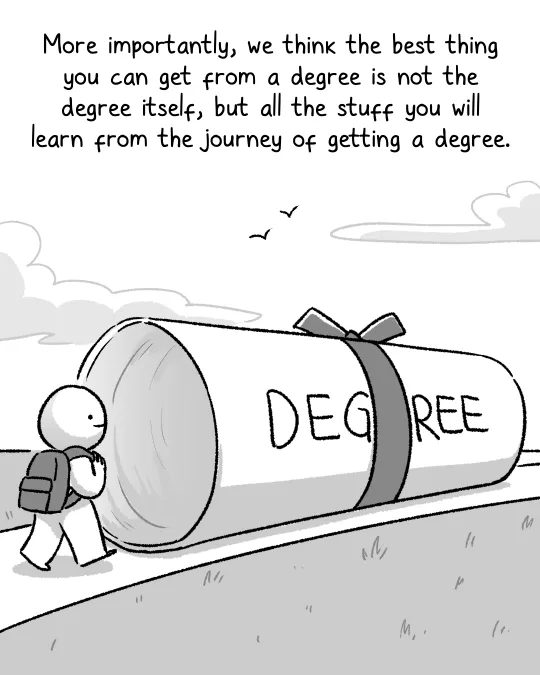
More importantly, we think the best thing you can get from a degree is not the degree itself but all the stuff you will learn from the journey of getting a degree.
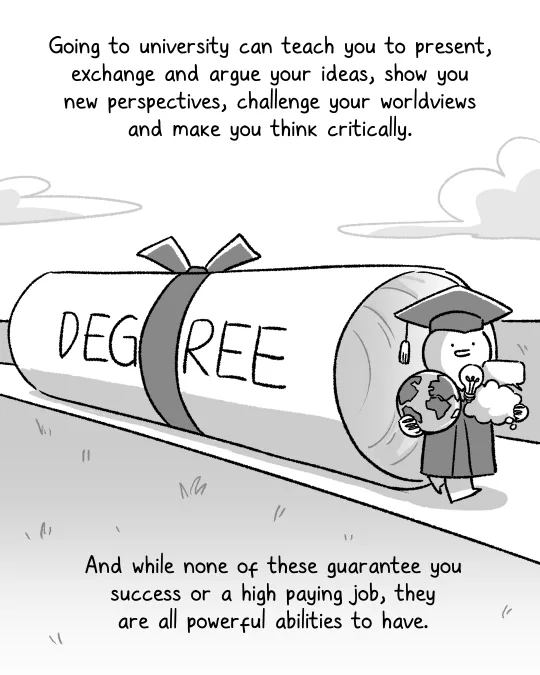
Going to university can teach you to present, exchange, and argue your ideas, show you new perspectives, challenge your worldviews, and make you think critically. And while none of these guarantee you success or a high-paying job, they are all powerful abilities to have.
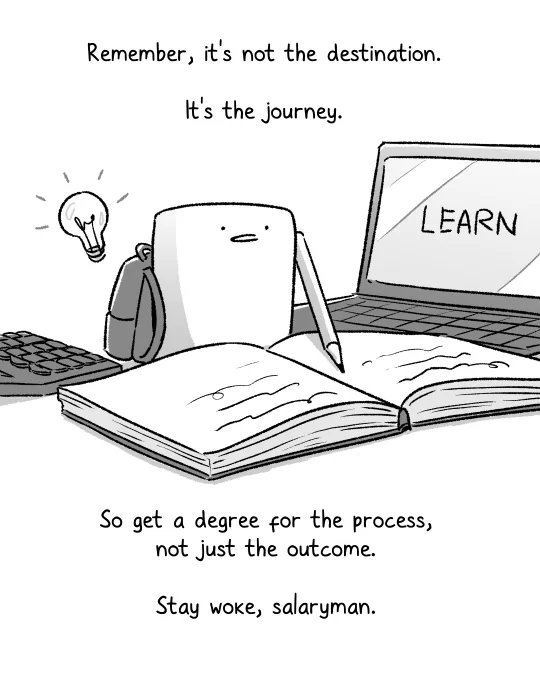
Remember, it’s not the destination. It’s the journey. So, get a degree for the process, not just the outcome. Stay woke, salaryman.
Credit By salaryman






